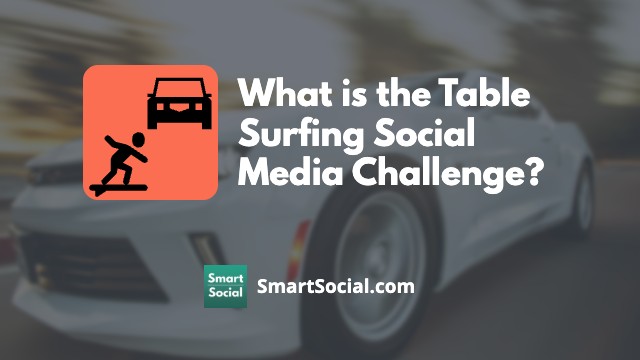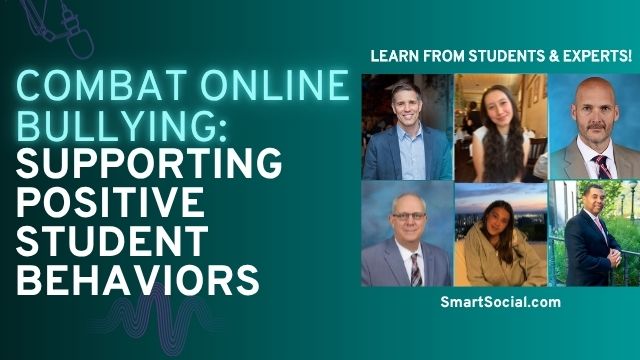How to Post in an Authentic Manner to Tell a Balanced Story
Green Zone App
(Click here to learn more)
Dangerous Social media challenge
(Click here to learn more)
Red Zone App
(Click here to learn more)
Gray Zone App
(Click here to learn more)
Many parents and educators want to teach students how to post in an authentic manner to tell a balanced story online. Learn how to mentor students on how to be safer online, how students can use social media in a positive way, and what to avoid posting to Shine Online while applying to colleges.
Watch the 42-minute panel discussion or read a summary of highlights below.
Watch the 42-minute panel discussion:
How can parents, or any adult, mentor novice users on how to be online and how to post?

Co-founder
Parents Who Fight
When you are teaching your kid how to drive, which I think strikes fear in most parents of 15 and a half-year-olds, you are in the car with them without anyone else, in an empty parking lot and this is dedicated time to really learn to do this. So, can you imagine a world where parents are helping kids create their first posts? Can you imagine it? And there are all kinds of things that ramp up to that before you get Instagram. For instance, the Legos site had a joke contest, so I sat with my son and talked about his entry. We went through a lot of versions of the post, like, “Let's not say this or that because someone might misconstrue what that joke was about”. You are helping them understand that this is how you communicate online. So, it's not so reactive but really proactive.
Social Assurity, a tool that provides social media education, reports that 80% of students who create LinkedIn profiles and include them in their applications state that someone from the college to which they’re applying has looked at their profiles.
I think that's what makes LinkedIn unique because you can see. Sometimes with kids just knowing that people are looking makes it worth it. Someone looked! It’s helpful. Another organization called PortfolioGen has places where you can upload academic work and non-academic work. It has a very diversified content tool so there’s a place for blog posts or speeches, that's really helpful. –Sarah Siegand, Parents Who Fight
What advice can you give to students with the knowledge that there are a growing number of schools not accepting test scores and are doing Google searches on prospective students?

College Consultant
Wise Owl College Consulting
30% of schools admit they are starting to look at students’ social media. –Amanda Stangeland
It is somewhere around 30% mark and the number is rising. 30% of schools admit they are starting to look at students’ social media, Googling students, things of that nature. We're also finding out that it is more of the smaller liberal arts schools, probably not the top 100 schools that we all know and hear about, but others that are searching. There are nearly 4000 colleges in this country so there’s plenty of schools and plenty of options. We are hearing some of these schools are doing away with test scores.
They're saying test scores are not a good reflection of the students that we’re admitting and it paints the wrong picture, so we are just doing away with them. So many students are just submitting their grades. And now that those institutions are not looking at test scores, they are looking for a broader picture of the student, trying to get to understand what the student is about before they bring them in... It is challenging to get students to use LinkedIn in a prolific way, but one thing it can do, is allow students to use the work experience section to talk about a lot of different types of experiences. It's a great way to show what they aspire to.
There are ways they can follow people and organizations that interest them. They can connect because when you're on LinkedIn you can see who other people are connected with so I think it's also a great networking tool for students, not necessarily to build a network of people that are really close to them, like some of these other platforms do, but instead to build their own network of people who inspire them, that they want to emulate. –Amanda Stangeland, Wise Owl College Consulting
What about venting? Do you have about tips about how to vent other than on your social media? How do you talk to students about that?

Learning Design Spc
Peer Spring
Know the difference between your confidantes and your allies. –Ryan Oliver
I think the general rule for anybody, regardless of age, is just don't put it in writing. If you feel you really need to emote in some way, then do it, and this comes from way back, from “Leadership on the Line”, which is a classic leadership book from way back.
Know the difference between your confidantes and your allies. Your allies are the people that might work with you and that you see every day, that are part of your organization. Don't vent with those people, problem solve with them.
Your confidantes are the people that are outside of your professional world or your academic world that just care about you and you can say anything to them and it's not going to come back to bite you, hopefully. –Ryan Oliver, PeerSpring

Lieutenant
Huntington Beach PD
Be careful what you put in writing. –Tim Martin
I think to a certain degree it's really okay to make fun yourself and to have some levity. If something happened in our city and our police department that is maybe negative towards us, the first thing we will do is to get on top of it. We will fall on our sword, we will post it online, we’ll put that statement out there, it just takes the wind out of people's sails if you are making fun of yourself and putting that out there.
So, I agree with be careful what you put in writing for sure but you see things on social media, you see posts on Twitter and Facebook and Instagram that are really funny and it's people making levity of their situation themselves. As long as it’s done in taste and there's no profanity, I think it's ok. –Tim Martin, Huntington Beach Police Department
We are always teaching students, make fun of anyone as long as it's you! It’s like, you can have any car you want on the line, as long as it's black! said Henry Ford. And then, also, it has to have a little bit of positivity and gratitude. Whatever you are sending, it has to have one or the other, or combination of both. –Josh Ochs, SafeSmartSocial.com
What are some examples of things people shouldn't do when applying to their dream school?

Admissions Counselor
InGenius Prep
By trying to be funny, or trying to get the interest of a bigger school, students really damage their own chances. –Mary Tabata
I'm thinking about student athletes, when they're signing their letter of intent and their number one school hasn't responded yet. So, they decide to stir things up a little bit and they're obviously trying to get attention from their division 1 school that they're looking at, by showing themselves prominently displayed wearing colors from another school.
Like wearing someone else's sweatshirt, because they're kind of advertising that they're taking their second or third or fourth recruiting trip to somewhere else. Then, you know, the D1 school is going to say, well, if you're so in love with this D3 school, then you can go to school there. So, by trying to be funny, or trying to get the interest of the other bigger school, they really damage their own chances and shoot themselves in the foot by publicly displaying, “Here I am!”, and this kind of bravado. –Mary Tabata, InGenius Prep
It’s important to point out that there’s a difference between being authentic and being casual. –Sarah Siegand
I think it’s important to point out, and probably have the conversation with teens too, that there's a difference between being authentic and being casual. This example of the student athlete reminds me of this point, that you can be authentic and who you are online. You can showcase your skills, your talents, you can be Light, Bright and Polite. You can thank whoever you were with that day and that is all authentically you. But that is very different than being casual you.
And the conversation that you have with a friend in your bedroom is going to be a very different conversation than you would have in front of other people somewhere else. Something I used to say a lot more and I'll probably start saying it again, is, whenever you post something, you should think about who is somebody that follows you with whom you are connected. Who are the top people? Who are parents, Ph.D’s, or law enforcement?
Who are some people that you know are looking at you. And would you say that in front of them, to their face? And if the answer is no, it probably doesn't belong online. This is an important distinction to make, that being authentic doesn't mean, well that's just who I am and how I am, that's being just casual. I think we can be authentically ourselves with different audiences and still be the same person. –Sarah Siegand, Parents Who Fight
This post is an excerpt from our Digital Citizenship Conference in 2017. The conference was a rich environment for educators, law enforcement officers and parents to openly discuss issues and solutions for helping students shine in the digital world.
Protect your family and enter for a chance to win cool prizes
Become a member or log in to learn more on this topic
Protect your family and enter for a chance to win cool prizes

., start learning from this page to earn points!*
Hello, I'm Josh, the founder of SmartSocial.com.
Don't leave this page until you fill out our feedback form that will appear after you learn from the resources...
Become a Very Informed Parent (VIP) to get our social media suggestions in your email every Tuesday & Thursday.



Hello, I'm Josh, the founder of SmartSocial.com. Protect your family by taking my 1 minute quiz
This quiz will help you understand how safe your family is


Schools & Districts: Partner with us to protect your community online
Our remote presentations (and website) teach over a million parents and students each year how to be safe so they can shine online. We teach students how their accounts can be used to create a portfolio of positive accomplishments that impress colleges and employers.


Join Our Smart Social Podcast
each week on iTunes
With over 500 episodes, Josh Ochs interviews psychologists, therapists, counselors, teachers, and parents while showing you how to navigate social media to someday shine online.
Listen on:



.jpg)
.jpg)
.jpg)


